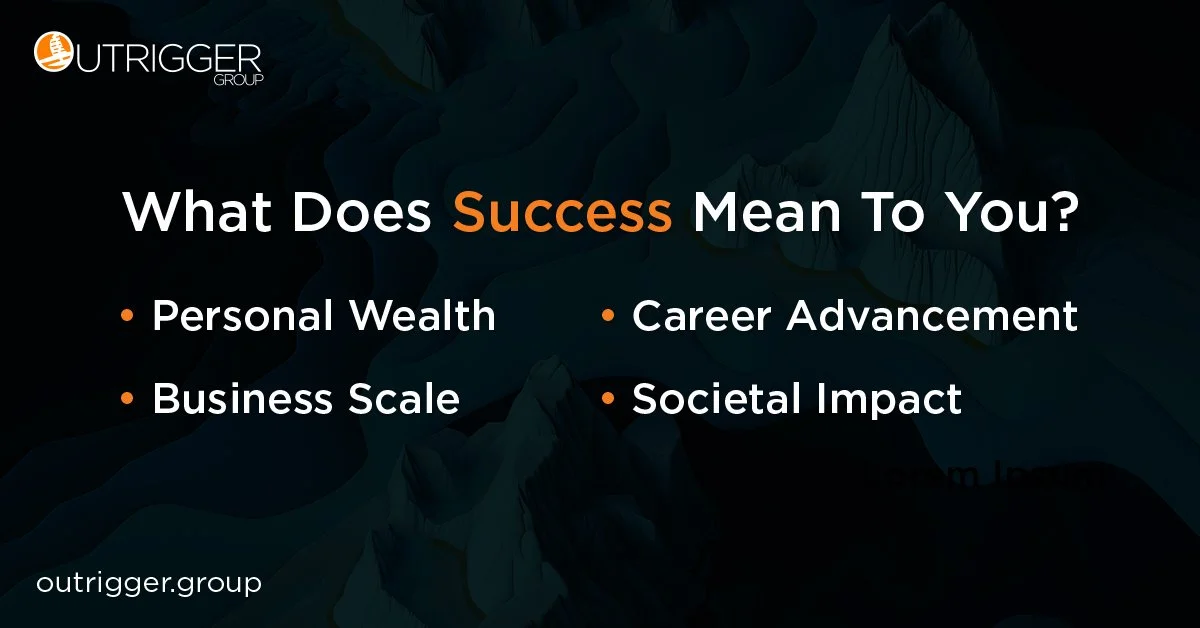How to Build A Successful Business: Define Your Own Success
By Evan Schnidman, CEO, Outrigger Group
On a surface level, starting a business seems like a simple task. You believe that you have a unique solution to a particular problem, so you decide on a name, build a team, and bring it to life.
However, being an entrepreneur means getting pulled in many directions. It is easy to get caught up in external comparisons and expectations—what are others doing? How are things “supposed” to happen?
Over the last 15 years, this has increasingly meant that startup founders rush to raise VC money without first stepping back and defining the actual goals of their business.
If you are a founder, the point of this blog post is to remind you to define what “success” means to you. It is impossible to build a “successful” business without first defining what that means.
Depending on your unique situation, success can mean a lot of different things, including:
Personal Wealth
Earning a decent living
Gaining financial freedom
Creating generational wealth
Business Scale
Building a cashflow positive small business
Getting acquired by strategic or PE
Scaling to Unicorn or IPO
Career Advancement
Gaining valuable personal experience
Developing a great team
Changing the paradigm for how people work
Societal Impact
Helping a local community
Creating a product or service used around the world
Effecting generational change or global influence
Once you define success, you can more clearly focus on your day-to-day priorities, strategy, and hiring practices, for instance:
If acquisition is the goal, start building relationships with potential acquirers early. Intentionally bring on investors who are experienced with the acquisition of portfolio companies.
If you want to scale infinitely, you need members of the team (including investors) who have experience in hyper-scale situations.
If the objective is to build at a smaller scale but achieve sustainable cashflow, avoid raising capital and hiring like you're heading for an IPO.
Perhaps most importantly, never lose sight of the fact that you need to stay in love with the problem you are solving, not the solution you are selling. The best team with the clearest goals will not get far without a founder who deeply understands and cares about their target audience.
This deep market understanding comes from immersing yourself in the world of those facing the problem, ensuring your solution is purpose-built, practical, and valuable. Problem-focused founders will also avoid ego-driven attachment to solutions that may be technically savvy but ultimately do not serve their market.
Personally, I know entrepreneurs who feel like a success if they can simply afford to pay themselves, and others who feel as though the company they took public is a failure. There is no universal benchmark, so start by defining success on your own terms. From there, the path becomes much clearer.
At Outrigger Group, we provide fractional executive support to help you achieve your version of success. Whether you're scaling, pivoting, or refining your strategy, our experienced team is here to offer support without slowing you down. Reach out to info@outrigger.group if you want to start a conversation.

